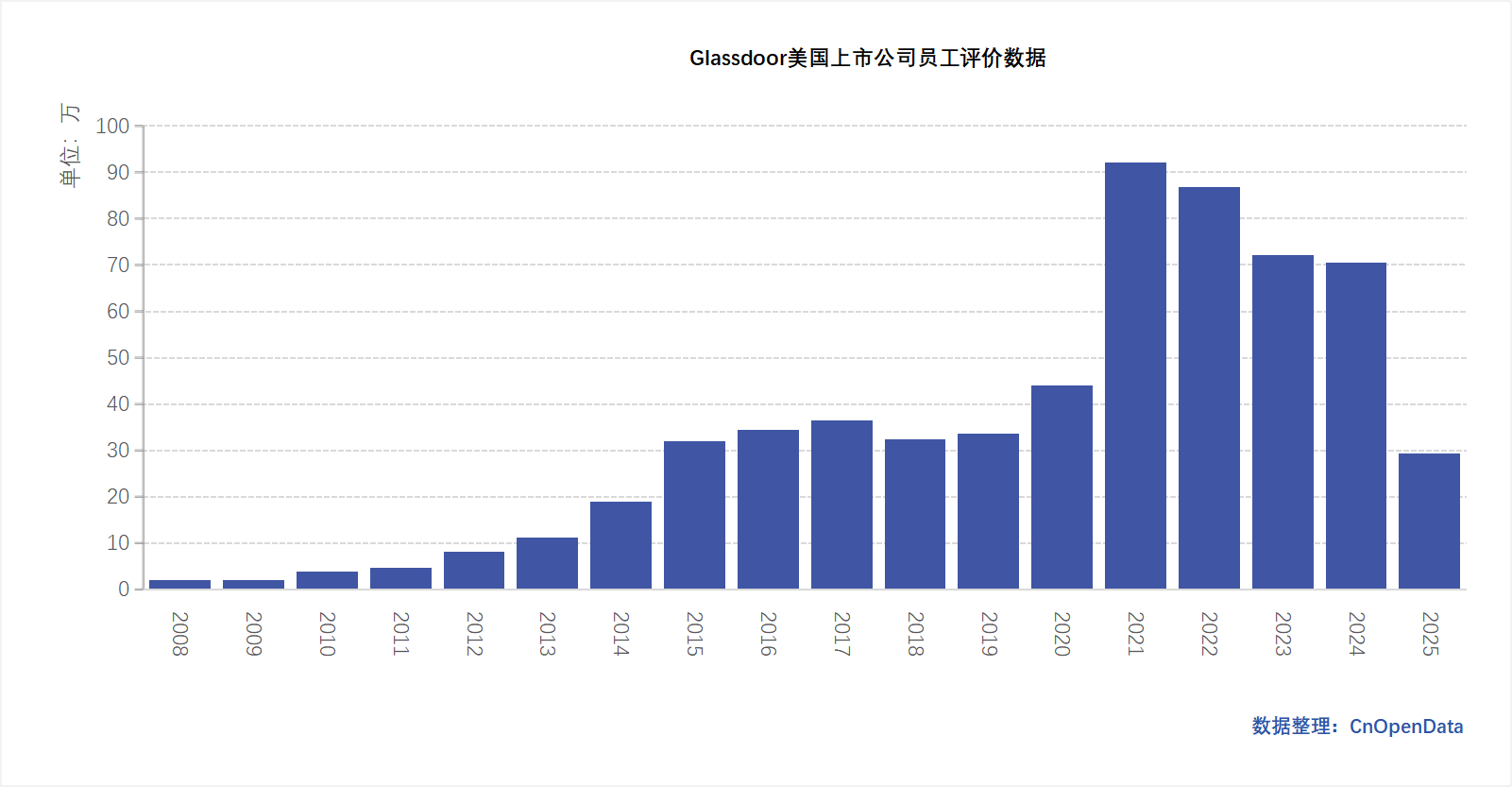Beyond external stakeholders such as shareholders, creditors, and governments, the interests of employees deserve proper protection by companies, as employees constitute the true agents of value creation. Enhancing a firm's competitiveness in the product market fundamentally requires improving employee satisfaction. Only with higher job satisfaction and well-being can employees maintain stronger work motivation.
The employee review system was pioneered by major internet companies to enable job seekers to quickly understand an organization’s commitment to protecting employee interests, thereby assisting applicants in identifying the best employers. Moreover, employee reviews of their employers provide valuable references for other societal stakeholders—including industry peers, media, and regulatory bodies—to assess companies.
CnOpenData’s Glassdoor Employee Reviews Data for U.S. Public Companies comprises two tables: the Basic Information Table and the Employee Reviews Table. These encompass fundamental company details along with employee evaluations of employers—covering satisfaction with work, company culture, and environment—as well as metrics on compensation & benefits, cultural values, corporate outlook, and recommendation status (是否推荐).
Time Coverage
2008–2025.07.20
Data Volume

Field Display
Sample Data
Basic Information Table for U.S. Public Companies
Employee Reviews Table for U.S. Public Companies
Related Literature
- Cao Y, S. Cheng, J. W. Tucker and C. Wan, 2023, "Technological peer pressure and skill specificity of job postings", Contemporary Accounting Research, forthcoming.
- Kelly Huang, Meng Li and Stanimir Markov, 2020, "What Do Employees Know? Evidence from a Social Media Platform", The Accounting Review.
- Dehaan E., N. Li and F. S. Zhou, 2023, “Financial reporting and employee job search”, Journal of Accounting Research, 61(2): 571-617.
Update Frequency
Annual updates